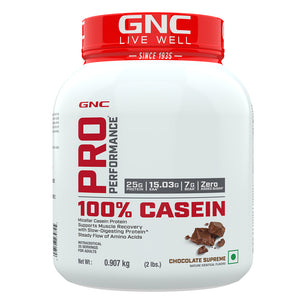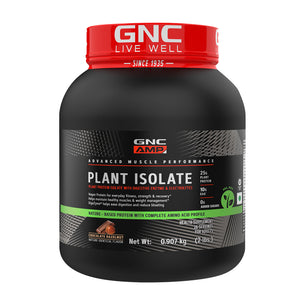
Whether running sprints, swimming long distances or lifting weights, athletes expend more energy than non-athletic persons. They, therefore, need additional nutrients. Protein is an important nutrient for athletes. It helps to maintain and strengthen muscle tissue, as well as repair if and when needed. High protein diets are usually popular among athletes; particularly the ones who won’t strive to be lean. So now we ask- how much protein is actually required?
Protein requirements should be determined for athletes after looking at their overall diet. The athletes, who consume an adequate diet in terms of carbohydrate, fat and less of protein for energy than those who consume a higher protein diet.
Strength training aids active sport and good health for men and women. There is little information about the specific nutritional needs of women athletes. Many women athletes restrict energy and fat intake with the purpose of altering body composition of reducing fat and increasing muscle mass. Female athletes mainly the strength training women may require more protein compared to endurance training athletes. This higher protein helps them achieve a positive nitrogen balance, which will aid in protein synthesis. Therefore, women athletes should put emphasis on good quality protein and also have an appropriate consumption of dietary fat which will help to maintain a positive energy balance. It is necessary to plan appropriate diets with attention to the time of meals, important nutrients and their quality and amount of macronutrients.
Several amino acids are oxidized during endurance exercise. These amino acids may be providing 1–6% of the total energy cost of exercise. Thus, if the intake of energy and carbohydrate is adequate, low or moderate intensity endurance exercise may not cause an increase in dietary protein requirements. However, there are situations when dietary protein requirements exceed the intakes. Such a situation is more possible in male athletes whose requirement is approximately 1.6 g protein/kg/day. In women, it is commonly possible that energy and/or carbohydrate intake is low. Thus, protein intake may exceed the requirement. Protein requirements for female athletes have been suggested to be lower than those for men due to the difference in body composition. Thus, most of the female athletes can meet their protein requirements provided that energy requirements are met.
The requirement of proteins is determined by the type of activity or exercise selected. This is the basis for recommending high protein intakes for athletes. Those athletes who need to develop muscle mass, need a higher protein intake. The role of amino acids in muscle synthesis is known. Protein concentrates, will aid in muscle building but it needs to be paired with appropriate training of correct frequency and duration. For female athletes, high protein consumption will also help to maintain lean body mass in case of inadequate energy intake. Female athletes may restrict energy in order to lose body fat.
While we say that protein need is higher for female athletes, it is necessary to think of the following-
- Protein supplement or a dietary source of protein should be consumed before or after resistance exercise. This will help good muscle protein synthesis to occur.
- To build more muscle and to maintain a positive nitrogen balance, an athlete needs about 1.4–2.0 g protein/kg body weight/day along with exercise.
- Research studies have suggested that higher protein intakes (>3.0 g/kg/d) may help loss of fat.
- Along with high protein intake, the quality of protein is important.
- First class protein with an emphasis on essential amino acids should be selected. Athletes should focus on protein sources which are complete with all the essential amino acids. These amino acids are needed for muscle synthesis.
- The day’s intake of protein should be spread throughout the day. Thus a protein food should be incorporated in the diet at every meal or snack.
- Though meeting the daily protein needs with whole foods in the diet is possible, using protein supplements will ensure that the higher need is met with a sufficient quantity of good quality protein.
- Endurance athletes should focus on achieving adequate carbohydrate intake to promote optimal performance; the addition of protein may help to offset muscle damage and promote recovery.
- Pre-sleep casein protein intake (30–40 g) provides increases in overnight MPS and metabolic rate without influencing lipolysis.
While we know that protein is necessary for building muscle mass, more may not be always better. Just eating large amounts of lean protein will not ensure a well-toned body. Muscle growth occurs only when exercise is combined with diet. Also, the timing of protein intake is important. Eating good quality protein (meat, fish, eggs, dairy, soy, nuts) within two hours after exercise will boost muscle repair and growth. Duration and intensity of the activity is important when it concerns protein needs. Power athletes definitely need a higher level of protein consumption than endurance athletes.

The Academy of Nutrition and Dietetics, Dieticians of Canada and the American College of Sports Medicine recommend that protein intake should be spread out throughout the day, particularly after workouts.
Athletes who eat a properly planned diet keeping in mind all their needs can acquire the recommended amount of protein through food alone. Protein powders and supplements are good and convenient to use. But these are not an absolute must for improving athletic performance. They are most useful if an athlete is missing a meal or when athletes need protein immediately after their workout.
It has now been accepted that athletes need higher protein requirements. It is appropriate to consider the daily diet perspective which will include all meals and will reflect protein, fat and carbohydrate content. A personalized nutrition plan for every athlete which will also consider the duration of training, intensity and time of training is the accurate approach to help the athlete achieve their goals.
OFF
OFF
OFF








